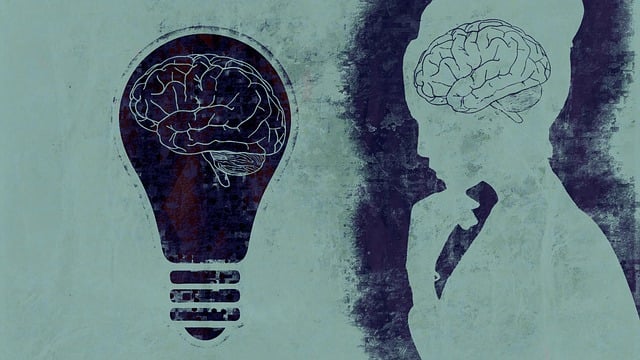Mental health advocacy is crucial in raising awareness, combating stigma, and ensuring equal access to care, as exemplified by the Arvada Chronic Illness Therapy Model. This holistic approach integrates trauma support into therapy for chronic mental illnesses, creating safe spaces where clients share struggles openly. By mapping local needs, destigmatizing mental health issues, and normalizing resources like workshops and support groups, communities can foster resilience and empower individuals to take charge of their well-being. Arvada Chronic Illness Therapy prioritizes data-driven strategies, refining programs based on client outcomes and feedback, demonstrating the tangible benefits of holistic mental health advocacy.
Mental health advocacy plays a pivotal role in fostering well-being within communities. This article explores effective initiatives, leveraging the Arvada Chronic Illness Therapy Model as a case study. We examine gaps in community mental health support and present strategies for impactful advocacy. The success of Arvada’s approach is evaluated through measurable outcomes, offering valuable insights for enhancing mental health services. By understanding and addressing needs, we can create a more supportive environment for those facing mental health challenges.
- Understanding Mental Health Advocacy: The Arvada Chronic Illness Therapy Model
- Identifying Gaps and Needs in Community Mental Health Support
- Strategies for Effective Mental Health Advocacy Initiatives
- Measuring Impact and Success: Evaluating Arvada's Approach
Understanding Mental Health Advocacy: The Arvada Chronic Illness Therapy Model

Mental Health Advocacy plays a pivotal role in creating awareness, challenging stigma, and ensuring equitable access to care. At its core, it involves championing the rights and well-being of individuals facing mental health challenges. The Arvada Chronic Illness Therapy Model serves as an exemplary framework for understanding this advocacy process. This innovative approach centers around providing holistic support for individuals with chronic mental illnesses, emphasizing communication strategies that foster mental wellness.
Through the Arvada model, trauma support services are seamlessly integrated into therapy sessions, recognizing that many chronic conditions stem from or are exacerbated by traumatic experiences. By adopting this comprehensive strategy, advocates and therapists can create safe spaces where clients feel empowered to express their struggles openly. This, in turn, facilitates deeper understanding and more effective interventions tailored to individual needs.
Identifying Gaps and Needs in Community Mental Health Support

In many communities, there are often unseen gaps and unmet needs when it comes to mental health support. This is particularly evident in areas like Arvada, where chronic illnesses and related psychological strains may be prevalent but lack specialized services. Identifying these gaps requires a comprehensive understanding of the local population’s unique challenges, including high-risk demographics, cultural barriers to care, and underresourced support systems. By mapping these needs, community advocates can pinpoint critical areas for intervention and tailor initiatives that address specific mental health concerns.
For instance, while Burnout Prevention Strategies for Healthcare Providers are essential, their implementation must consider local contexts. Public Awareness Campaigns Development can play a pivotal role in destigmatizing mental health issues and encouraging early intervention. Boosting confidence through community-based programs can further empower individuals to seek help. These efforts collectively work towards creating a more resilient and supportive environment where everyone has access to the resources they need, such as Arvada Chronic Illness Therapy, to thrive.
Strategies for Effective Mental Health Advocacy Initiatives

Mental health advocacy initiatives require a multi-faceted approach to make a lasting impact. One effective strategy is to Arvada Chronic Illness Therapy integration into community programs. By collaborating with local schools, workplaces, and community centers, mental health resources can be made more accessible and normalised. This includes offering workshops on Emotional Well-being Promotion Techniques that teach individuals practical tools for managing stress and improving their overall mood.
Moreover, these initiatives should focus on fostering Inner Strength Development. Encouraging resilience and self-care practices empowers individuals to take charge of their mental health. Regular support groups, peer mentoring programs, and accessible therapy services contribute to a supportive environment where individuals feel understood and encouraged to prioritize their Mood Management. Through these holistic approaches, advocacy efforts can lead to positive changes in the community’s overall emotional landscape.
Measuring Impact and Success: Evaluating Arvada's Approach

Arvada Chronic Illness Therapy takes a holistic approach to mental health advocacy, recognizing that success isn’t just about increasing access to services but also ensuring positive outcomes for individuals. To measure impact, they employ robust evaluation methods that look beyond simple participation rates. This involves tracking improvements in clients’ quality of life, functional abilities, and overall mental well-being over time. By integrating feedback from participants and stakeholders, Arvada can continually refine its programs, including Public Awareness Campaigns Development, Social Skills Training, and Stress Management workshops, to better meet the evolving needs of the community.
Their methodical evaluation process includes pre-and post-program assessments, client interviews, and focus groups, allowing for a comprehensive understanding of how their initiatives influence long-term behavioral changes and recovery rates. This data-driven approach enables Arvada to showcase the tangible benefits of their mental health advocacy work, fostering transparency and inspiring further investment in evidence-based practices that promote resilience and healing.
Mental health advocacy initiatives, such as the Arvada Chronic Illness Therapy Model, play a pivotal role in addressing community mental health support gaps. By understanding the unique needs of diverse populations and employing effective strategies, these programs can significantly enhance access to care. Measuring impact through evaluation ensures continuous improvement, echoing the success of Arvada’s approach. This article has illuminated key aspects of successful advocacy, offering valuable insights for fostering robust mental health support systems.














